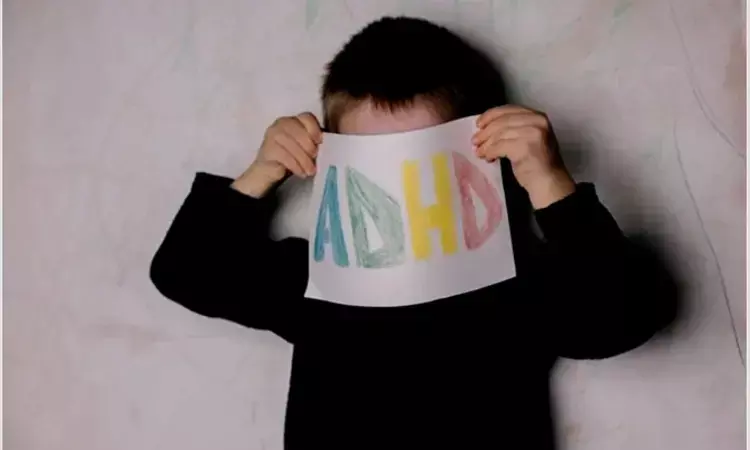- Home
- Medical news & Guidelines
- Anesthesiology
- Cardiology and CTVS
- Critical Care
- Dentistry
- Dermatology
- Diabetes and Endocrinology
- ENT
- Gastroenterology
- Medicine
- Nephrology
- Neurology
- Obstretics-Gynaecology
- Oncology
- Ophthalmology
- Orthopaedics
- Pediatrics-Neonatology
- Psychiatry
- Pulmonology
- Radiology
- Surgery
- Urology
- Laboratory Medicine
- Diet
- Nursing
- Paramedical
- Physiotherapy
- Health news
- Fact Check
- Bone Health Fact Check
- Brain Health Fact Check
- Cancer Related Fact Check
- Child Care Fact Check
- Dental and oral health fact check
- Diabetes and metabolic health fact check
- Diet and Nutrition Fact Check
- Eye and ENT Care Fact Check
- Fitness fact check
- Gut health fact check
- Heart health fact check
- Kidney health fact check
- Medical education fact check
- Men's health fact check
- Respiratory fact check
- Skin and hair care fact check
- Vaccine and Immunization fact check
- Women's health fact check
- AYUSH
- State News
- Andaman and Nicobar Islands
- Andhra Pradesh
- Arunachal Pradesh
- Assam
- Bihar
- Chandigarh
- Chattisgarh
- Dadra and Nagar Haveli
- Daman and Diu
- Delhi
- Goa
- Gujarat
- Haryana
- Himachal Pradesh
- Jammu & Kashmir
- Jharkhand
- Karnataka
- Kerala
- Ladakh
- Lakshadweep
- Madhya Pradesh
- Maharashtra
- Manipur
- Meghalaya
- Mizoram
- Nagaland
- Odisha
- Puducherry
- Punjab
- Rajasthan
- Sikkim
- Tamil Nadu
- Telangana
- Tripura
- Uttar Pradesh
- Uttrakhand
- West Bengal
- Medical Education
- Industry
Is Viloxazine relevant for treating attention deficit hyperactivity disorder in children? Study sheds light

USA: A review article, published in the Frontiers in Psychiatry has described the relevance of Viloxazine for the treatment of attention deficit hyperactivity disorder (ADHD). The study by Amber N. Edinoff, Louisiana State University Health Science Center Shreveport, Shreveport, LA, United States, and colleagues stated that the drug's clinical effects, mechanism of action, and limited side effect profile point towards its relevance in ADHD treatment.
Attention deficit hyperactivity disorder, a chronic condition, is the most common neurodevelopmental disorder in children. Over the past 20 years, there has been exponential growth with regard to research on the disease and its characteristics and treatment options. Stimulants, which have a response rate of ~70%, are the first-line pharmacologic treatment of ADHD.
The FDA has given approval to the non-stimulant, serotonin-norepinephrine modulating agent (SNMA) viloxazine in an extended-release capsule (viloxazine ER) for ADHD treatment in children aged 6–17. The approval was based on the results from phase 3 studies involving more than 1,000 pediatric patients 6–17 years old. Viloxazine works by modulating serotonergic activity as a selective 5-HT22B receptor antagonist and 5-HT2C receptor agonist and moderately inhibiting norepinephrine transporter (NET), thus blocking the reuptake of norepinephrine.
A phase 2 study by Johnson et al. showed that once-daily dosing of viloxazine ER in dosages of 200, 300, or 400 mg in children with ADHD for wight weeks led to a statistically significant reduction of ADHD-RS-IV total score. A post hoc analysis of data from four phase 3, randomized, placebo-controlled, double-blind, three-arm, clinical trials by Faraone et al. found that early response to viloxazine treatment, defined as a change in ADHD-RS-5 total score at week 2, best predicted the treatment response at week 6 [75% positive predictive power (PPP), 75% sensitivity].
"Proper treatment of the symptoms and comorbidities associated with ADHD is critical in improving a patient's cognitive function, quality of life, and overall therapeutic outcomes," wrote the authors. "Viloxazine's mechanism of action, clinical effects, and limited side effect profile point toward the drug's relevance in the treatment of ADHD."
Reference:
Edinoff AN, Akuly HA, Wagner JH, Boudreaux MA, Kaplan LA, Yusuf S, Neuchat EE, Cornett EM, Boyer AG, Kaye AM and Kaye AD (2021) Viloxazine in the Treatment of Attention Deficit Hyperactivity Disorder. Front. Psychiatry 12:789982. doi: 10.3389/fpsyt.2021.789982
Dr Kamal Kant Kohli-MBBS, DTCD- a chest specialist with more than 30 years of practice and a flair for writing clinical articles, Dr Kamal Kant Kohli joined Medical Dialogues as a Chief Editor of Medical News. Besides writing articles, as an editor, he proofreads and verifies all the medical content published on Medical Dialogues including those coming from journals, studies,medical conferences,guidelines etc. Email: drkohli@medicaldialogues.in. Contact no. 011-43720751


